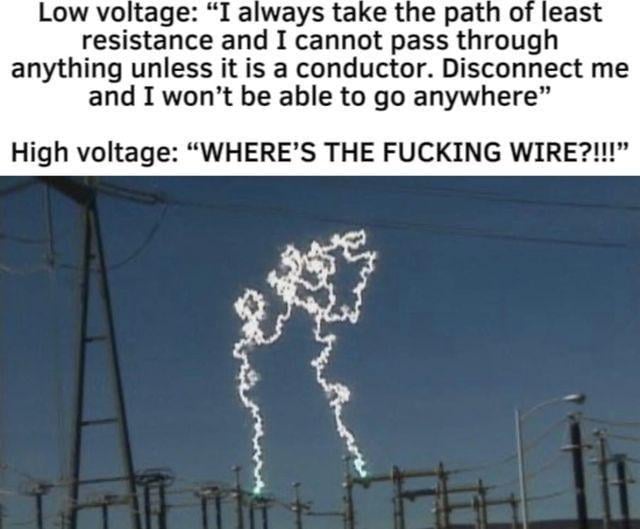this post was submitted on 14 Jan 2025
1111 points (98.9% liked)
Science Memes
11597 readers
1618 users here now
Welcome to c/science_memes @ Mander.xyz!
A place for majestic STEMLORD peacocking, as well as memes about the realities of working in a lab.

Rules
- Don't throw mud. Behave like an intellectual and remember the human.
- Keep it rooted (on topic).
- No spam.
- Infographics welcome, get schooled.
This is a science community. We use the Dawkins definition of meme.
Research Committee
Other Mander Communities
Science and Research
Biology and Life Sciences
- [email protected]
- [email protected]
- [email protected]
- [email protected]
- [email protected]
- [email protected]
- [email protected]
- [email protected]
- [email protected]
- [email protected]
- [email protected]
- [email protected]
- [email protected]
- [email protected]
- [email protected]
- [email protected]
- [email protected]
- [email protected]
- [email protected]
- [email protected]
- [email protected]
- [email protected]
- [email protected]
- [email protected]
- !reptiles and [email protected]
Physical Sciences
- [email protected]
- [email protected]
- [email protected]
- [email protected]
- [email protected]
- [email protected]
- [email protected]
- [email protected]
- [email protected]
Humanities and Social Sciences
Practical and Applied Sciences
- !exercise-and [email protected]
- [email protected]
- !self [email protected]
- [email protected]
- [email protected]
- [email protected]
Memes
Miscellaneous
founded 2 years ago
MODERATORS
you are viewing a single comment's thread
view the rest of the comments
view the rest of the comments

I always thought that was a dumb saying because voltage is specifically what allows there to be a lethal current.
I think people just don't understand ohm's law. They seem to think voltage and current are unrelated to each other.
I suppose it's half right. Obviously OHMs law is the triangle.
So you get a high voltage, running through a high resistance, it won't kill you. The problem is people interpret it in a way that seems to think raising the voltage without raising the resistance is just fine.
It's kinda hard to raise your body's resistance a ton outside of not making good contact (e.g. wearing rubber boots/gloves). Things like your skin being moist lower resistance, but I'm not sure it's really that much of a safety factor when dealing with high voltage.
I think the general gist is.. not as much your body's resistance as the circuit as a whole. IE a high voltage power source traveling through a high resistance circuit, vs touching the high voltage source directly.
It's about the full path the electricity takes (not counting any portion that you may be cutting out if you are giving it a faster path to ground allowing it to bypass some resistance), rather than just the voltage of the source.
That's the point that's trying to be made in that statement, the voltage is indeed a critical part of the equasion. Just not the sole portion of importance.